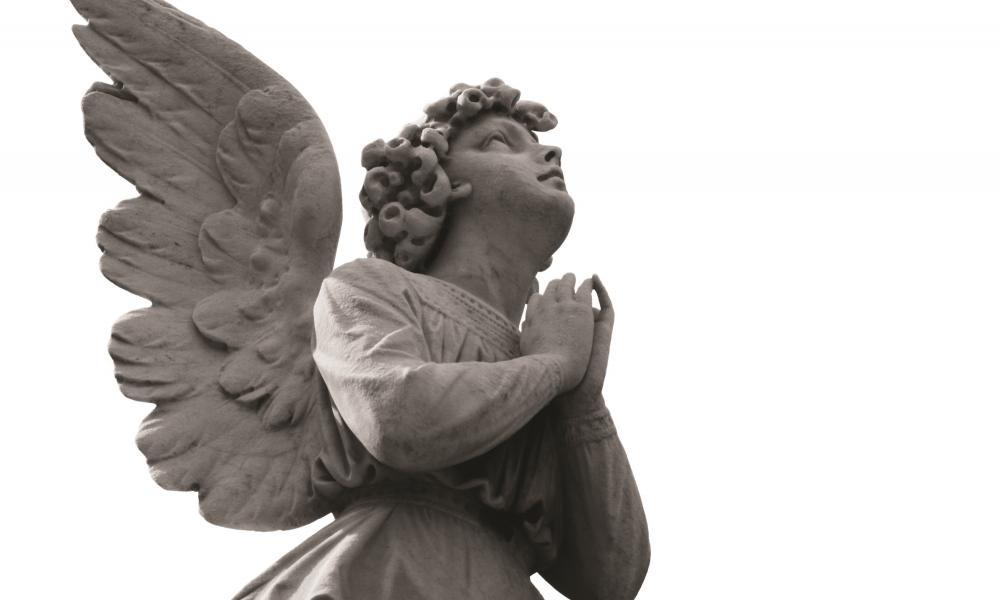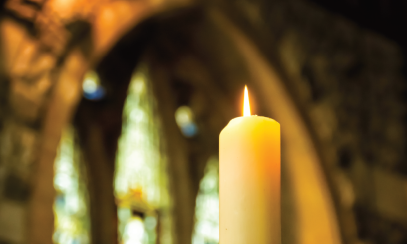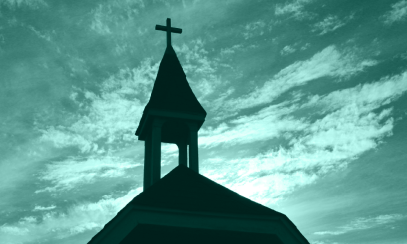
Will we become angels when we go to heaven?
Dear Father Joe: I’ve heard a lot of things and seen a lot of pictures about heaven and I wonder if that is what it will be like. Will there be mansions and streets of gold, and will we become angels?
Dear Father Joe: I’ve heard a lot of things and seen a lot of pictures about heaven and I wonder if that is what it will be like. Will there be mansions and streets of gold, and will we become angels?
This is such an important issue for all of us – death affects all of us indirectly and will obviously affect all of us personally at some point. We try, as a Church and even in society, to describe the ideas of death, resurrection and heaven because that is important to us. heaven is our goal, but if we forget our goal, we get lost.
I’m going to use Scripture and our tradition to answer these questions, with a lot of help from Dr. Peter Kreeft, my favorite philosopher and a guy who has written a lot about heaven. If you type “heaven” and his name into Google, you’ll find numerous helpful articles on this topic. So, with that in mind, let’s dive right in.
First things first: Do we become angels when we die?
Short answer? No.
It’s become popular in our culture to say, “Heaven gained another angel” when someone dies. I imagine this is just an expression we use and, in that regard, it can come across as harmless. However, I do want to point out that, as humans, we most certainly do not become angels when we die. We humans are unique in creation and have a special dignity. It seems to me that thinking that we have to change from human to something else in order to enter heaven can inadvertently have a lot of negative consequences, philosophically and theologically. I won’t burden us with those issues now, as that would probably take up more room than I have.
The key is this: As humans, you and I are totally different creatures than angels. Probably the most distinctive difference between us and angels is that we are body/soul unities, whereas angels are pure spirit. If we make it to heaven, we will join the angels there, but we will join them as humans.
So, what kind of humans?
If we look at Scripture, we see that what happens after our death is laid out for us.
When we die, our souls leave our bodies to face judgment and, at that point, the body begins to decay.
This judgment will result in our going to heaven or hell, with the understanding that, technically, purgatory is not separate from heaven.
At some point known only to God, Christ will return and, when that happens, our bodies will be raised and restored, and then will rejoin our souls wherever they are. (As an interesting side note, many Catholic cemeteries bury people so that, when their bodies rise up at Christ’s second coming, they will be facing east!)
Since we were created as body/soul unities, we will experience heaven or hell as body/soul unities.
So, what will that experience be? What will make heaven heavenly?
This is something that, for more than 2,000 years, Christians have tried to describe and, frankly, I don’t feel a lot of hope that I can do that better than most of them. The key is to think of it this way: All we can do is use imagery we know to express something that cannot be described.
My favorite image of heaven comes from St. John in the Book of Revelation. In it, he gives us images of people in heaven waving palm branches. Why is that? Why palm branches? They symbolize the scriptural account of Jesus’ triumphal entry into Jerusalem: In heaven, we are celebrating the King who conquered sin and death.
The key is this: The defining characteristic in heaven is ecstasy and the word itself gives us a sense of what heaven will be. When we look at the word “ecstasy,” we learn that it comes to us from the Greek word ekstasis, which means “standing outside oneself.” We have hints and whispers of heaven and hell in our everyday life; the more selfish we are, the more selfish we act, the more miserable we get. We have seen people who live only for what they want and their ability to make life horrible for themselves and for everyone around them.
We have also all seen and experienced the wonder of selflessness. As counterintuitive as it is, when we live for God, when we live for others, we find a deep joy, a sense that goes beyond anything we can account for on our own.
I think this is what Jesus means when he tells us that we find our lives when we lose them. Christ, who knows our nature, who knows our hearts, knows that they “never rest until they rest in [God].” In heaven, we will be outside ourselves focused on what and who really matters: God.
I want to close with a quote from Peter Kreeft. When he was asked if we will be bored in heaven, his answer blew me away in its beauty and simplicity. He said:
“We won’t be bored because we are with God, and God is infinite. We never come to the end of exploring him. He is new every day. We won’t be bored because we are with God, and God is eternal. Time does not pass (a condition for boredom); it just is. All time is present in eternity, as all the events of the plot are present in an author's mind. There is no waiting. We won’t be bored because we are with God, and God is love. Even on earth, the only people who are never bored are lovers.”
Brothers and sisters, God has given us the hope of heaven. May we respond to his mercy and his call to holiness, so that we can live that hope with integrity and joy!



